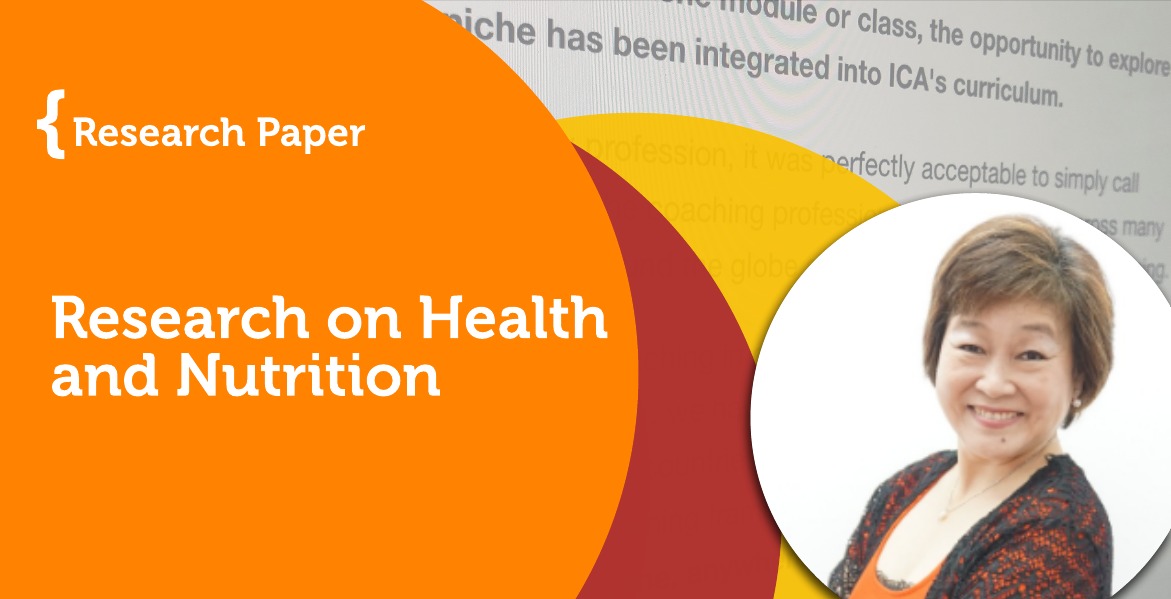
Research Paper By Elaine Lee
(Health and Wellness Coach, SINGAPORE)
What is Health?
In layman term, Health is “Wealth”, once you are well with no health issues you are considered healthy and wealthy as you need not spent so much money on your medical expenses due to rising cost of living.
According to the World Health Organisation, Health is a state of complete physical, mental and social well-being and not merely the absence of disease or infirmity.”In 1986, the WHO further clarified that health is:
A resource for everyday life, not the objective of living. Health is a positive concept emphasizing social and personal resources, as well as physical capacities.
As such, how do you consider yourself as “Healthy”? It is the ability to enjoy life to the fullest, bounce back after an issue or a crisis, achieve a well-balanced lifestyle, adaptability to adversity in life, feel safe and secure most of the time and achieve your potential in life/goals. In a nutshell, “Health” is fundamental to keep you emotionally stable, physically fit and mentally sound.
Here are some tips to know about Health:
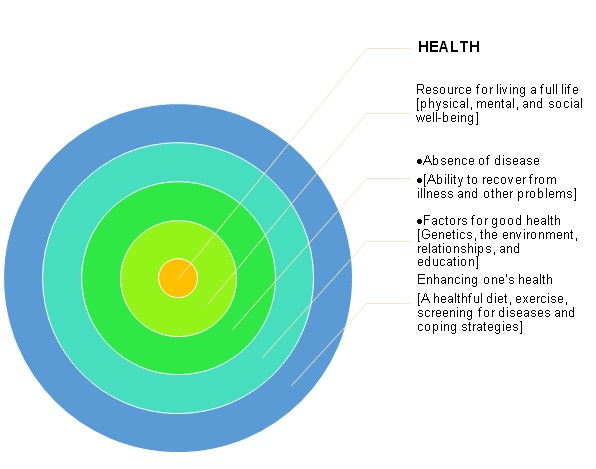
What is Nutrition?
According to medical reviewed by Natalie Butler, R.D., L.D. on January 9, 2020,
Nutrition is the study of nutrients in food, how the body uses them, and the relationship between diet, health, and disease.
Henceforth, Nutrition plays an important role in our daily dietary intake for physical, mental and energy requirements for a healthy mind, body, and soul. Without food and water, we are unable to sustain and maintain our cells, tissues or cellular renewal and perform any bodily functions required for our daily needs.
As a professional in nutrition,
Nutritionists use ideas from molecular biology, biochemistry, and genetics to understand how nutrients affect the human body.
Our body mechanism performs in a complex process to ingest the food intake and digest the food into small particles/components for better absorption of the nutrients for metabolism, therefore, produces energy to perform all the functions of different tissues/cells within the body to keep us healthy and fit in everyday life.
Based on Recommendation Daily Allowances (RDA),
The RDA represents the establishment of a nutritional norm for planning and assessing dietary intake and are the levels of intake of essential nutrients considered to be adequate to meet the known needs of practically all healthy people.
Reference table on RDA as a guide: –
Macronutrients (typical values)
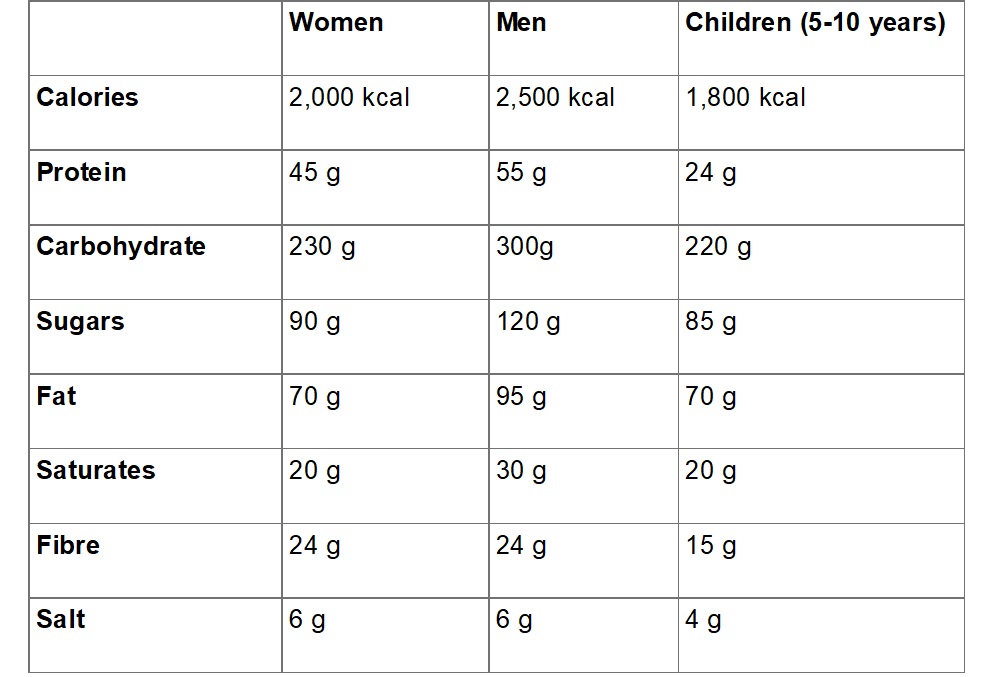 [Sources: http://www.foodcounts.com/recommended-daily-allowances/]
[Sources: http://www.foodcounts.com/recommended-daily-allowances/]
An adequate diet is essential to meet the nutritional needs of an individual. These needs are set forth for children and adults as part of the Recommended Dietary Allowances. Basically, nutrients are key components for the maintenance of one’s health; consisting of proteins, carbohydrates, fat, vitamins, minerals, fiber, and water to provide human beings on the right balance of diet for our daily needs.
Correlation to Health and Nutrition
Health and Nutrition work in tandem to keep us safe, balanced and stable. At the forefront of health and nutrition, it is focusing on dietary choices that can affect or even minimize the risk of health-related issues such as hypertension, kidney failure, obesity, malnutrition, food allergy, and other diseases.
Having too little or too much of certain nutrients can result in “Malnutrition” which can lead to serious health issues, including stunted growth, eye problems, diabetes and heart disease. Malnutrition is a condition that results from a nutrient deficiency or overconsumption.
Types of malnutrition as stated below:
Malnutrition is a worldwide problem that can result from environmental, economic and medical conditions. The WHO estimates that over 460 million adults and 150 million children are undernourished, while more than two billion adults and children are overweight or obese.
What triggers Food Allergy?
Another aspect of concern is about “Food Allergy”. Food allergy is an immune system reaction that occurs soon or immediately after the ingestion of a certain food that triggers an allergic reaction. The common symptoms are digestive problems, hives or swollen airways which can be life-threatening.
Food allergies are estimated to affect 4% – 6% of children and 4% of adults, according to the Centers for Disease Control and Prevention.
Food allergy symptoms are more prevalent in babies and children. However, it may occur to anyone at any age. You can even develop an allergy to foods even you have eaten for years with no problems. Hence, early detection of food allergy can be avoided in saving a life. As a health/medical professional, it is important to determine the underlying causes of food allergy and identify the following facts:
An allergic reaction to food can affect different areas of the body at the same time whereby it is visible and easily traceable. Some common symptoms include: –
Sources of food that commonly cause an allergic reaction: –
The best way to prevent an allergic reaction is to identify the food that causes the allergy and avoid it.
In the context of Singapore, the risk of obesity could hit at 15% in just seven years as cited by the Health Promotion Board (HPB)
If nothing is done, Singapore could hit obesity rates of 15 per cent in just seven years, said Dr Annie Ling, who is director of the policy, research and surveillance division at the HPB
Obesity is a state of being grossly fat/ overweight therefore, it is a health concern to overcome obesity. Adults are getting fitter, but children are increasingly overweight based on the statistics gathered by the Ministry of Health (MOH)
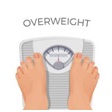
Common Health Problems of Student (Updated 1 June2018)
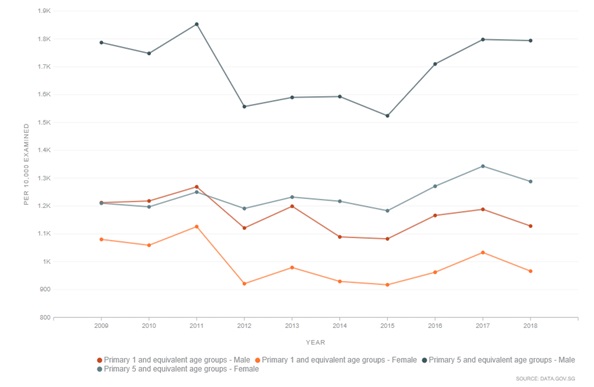
In Singapore, a person with a body mass index of 25 and above is deemed to be overweight. Anything above 30 is considered obese.
Body Mass Index (BMI)

Causes and Risk of Obesity
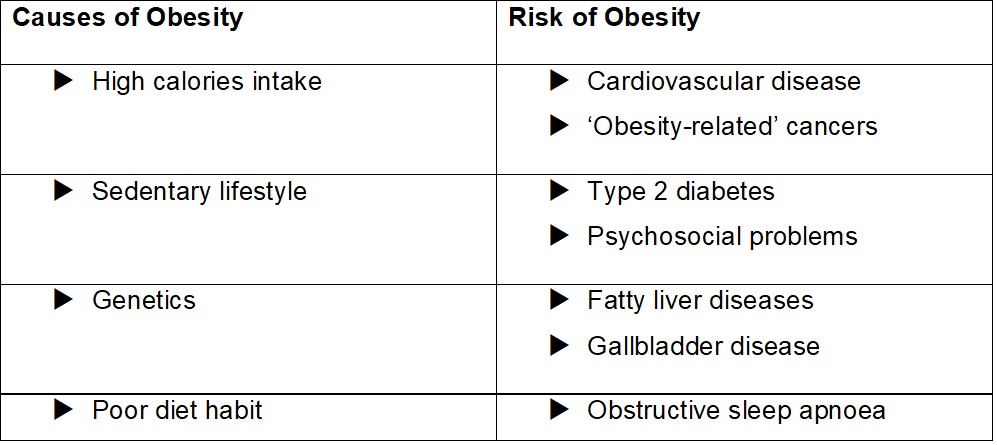
In essence, overeating or indulgence in food intake has a likelihood of obesity. It’s associated with several related systematic conditions due to metabolic syndromes such as high blood pressure, elevated blood sugar and a poor blood lipid profile.
People with metabolic syndrome are at a much higher risk of heart disease and type 2 diabetes, compared to those whose weight is in a normal range.
Therefore, early intervention is necessary to prevent or minimize the risk of obesity and developing any onset of chronic diseases.
Partnership on Weight Management
As a Health and Nutrition Coach, the partnership with your client is key to achieve the ultimate goals in the management of weight reduction. To set the foundation right, a coach has to be well-equipped with the medical and nutritional knowledge to understand the various aspect of dealing with your client. A coach should also meet the ethical guidelines and professional standards at all times. Establishing the coaching agreement is critical which is based on the client’s agenda in achieving the desired outcome(e.g. weight management). By creating a safe, confidential and supportive space that enhances mutual trust and respect with your client is necessary. Coaching presence should be present throughout the entire session. To connect and resonate well with your client; enhances an engaging session through active listening, powerful questioning, and direct communication. Here is an illustration of the coaching process to engage and connect with your client.
Process of Coaching
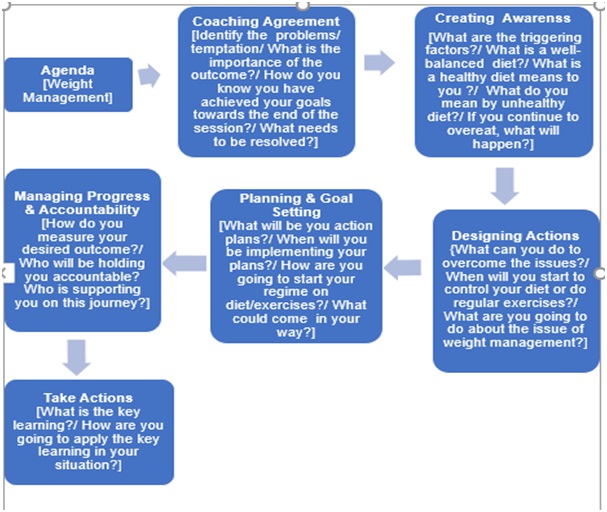
Helping your client to explore the possibilities of weight management and probing for options to take as an alternative solution to an issue that may arise. Identify the underlying beliefs that hindered your client’s ability to think beyond his/her perspectives in order to move forward and uncover his/her needs for the desired outcome. Measurement of success is important to plan, take actions and make a commitment to achieve his/her goals or objectives. Creating a spontaneous relationship with your client and encouraging a style that is open, flexible and confident to gain mutual trust and respect for better engagement during the coaching session.
A Holistic Approach to Nutritional Medicine
In today’s context, “Nutritional Medicine” is gaining better awareness to benefit our health. The intake of nutritional supplements is effective for preventive measures to minimize infections and reduce the risk of acute or chronic diseases. In the area of Nutritional Medicine, we need an adequate amount of nutrients for optimal level of absorption; to nourish, maintain and repair of bodily cells/ tissues in order to benefit on the overall mental and physical health.
Nutritional medicine is a holistic approach to the interactions of both nutrition and the environment on human health. Nutrients are the building blocks of our physical body; when the body is supplied with the correct balance of foods, vitamins and minerals, we remain healthy. The following are some examples of NutritionalMedicineto to improve one’s health and minimize the risk of diseases: –
It is important to take the correct nutrients at appropriate doses as it does aid in the absorption of certain nutrients on the bioavailability and efficacy of the nutritional supplements.
Nutritional medicine has evidence for reducing inflammation, toxicity, managing oxidative stress, correcting hormonal imbalances, improving immune function, altering genetic expression and reducing coagulation of blood.
Effectively, “Nutritional Medicine” can be used for preventive measures in underlying biochemical problems resulting in chronic degenerative diseases. Therefore, early intervention is important as “Prevention is better than cure”. Prior to the consumption of nutritional supplements for prophylactic measures rather than therapeutic treatment, it is best to seek advice from medical professionals, nutritionists or product specialists for your specific needs or condition to optimize the intake of certain nutrients required for better absorption and utilization. With specialized guidance and support, the experts are better equipped with the product knowledge to share the relevant facts and provide an array of the functional benefits of certain nutrients that are necessary to support your overall health.
Partnership in Health and Nutrition
In Health and Nutrition Coaching, a coach should support the client to identify the root cause of an existing problem and explore the possibility to address the issue that is predominantly occurring. As for physical fitness health, a coach can help the client to support and motivate on his/her physical exercises, monitor the frequency, regulate the intensity of the exercises, strength in terms of tolerance level of individual progress of the physical fitness. Lastly, measure the progress and success of the overall mental and physical outcome in order to achieve the desired goal. Acknowledged your client as a form of encouragement or recognition using words such as “high level of commitment’, “strong will power”, “positive mindset”, “high motivational level” and etc whenever appropriate Celebrate the success of your client once achieved the ultimate goals.
Formula to Good Health and Nutrition

Health and Nutrition are key components to sustain and maintain an overall mental and physical health. It is a “light bulb” to keep us active, healthy and a balanced lifestyle. To define simply, healthy nutrition is about “Healthy Eating, Healthy Living” so as to stay healthy, keep fit, be happy and live life to the fullest. Having a well-balanced diet and regular exercise are essential for “Healthy Eating, Healthy Living” too. An ideal Median Body Mass Index (BMI)ranging from 18.5 to24.9should be maintained in order to overcome obesity in Singapore.
For a holistic wellness makeover of body, mind, and soul – staying healthy means you need to “Maintain Healthy Lifestyle” as illustrated in the diagram below:
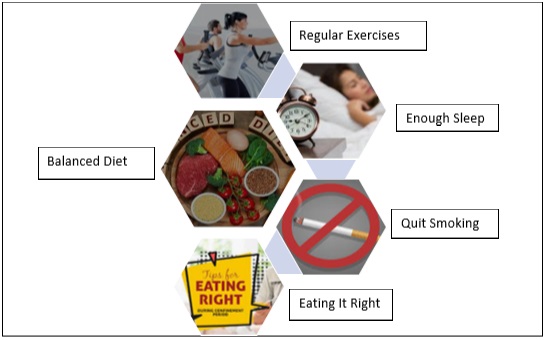
In reality, there is no such thing as “good” or “bad” food. The myth and facts can be confusing at times especially it can be classified as an apple is good and chocolate is bad. Stick with healthy-eating habit to achieve long term goals, “Be Active and Stay Healthy”
Here is “My Healthy Plate” by “Eating It Right’ with a well-balanced diet.
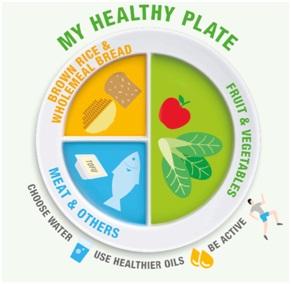
Sources: My Healthy Plate – HealthHub

Last but not least, start simple then shift to healthier food/beverage and choose more fruits/ vegetables by “Eating It Right” and “Be Active, Stay Healthy” for “Healthy Body, Mind, and Soul”.
References:
https://www.medicalnewstoday.com/articles/150999
https://www.medicalnewstoday.com/articles/160774
http://www.foodcounts.com/recommended-daily-allowances/
https://www.healthline.com/nutrition/malnutrition
https://www.medicalnewstoday.com/articles/14384#food_allergy_symptoms
https://www.nhs.uk/conditions/food-allergy/
https://www.straitstimes.com/singapore/singapore-risks-hitting-obesity-rates-of-15-in-seven-years
https://www.healthline.com/nutrition/10-causes-of-weight-gain
https://coachfederation.org/core-competencies
https://anpa.asn.au/nutritional-medicine/